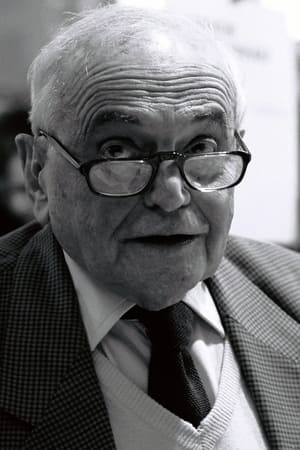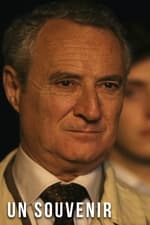Informação Pessoal
Reconhecido(a) por Argumento
Créditos conhecidos 4
Sexo Masculino
Nasceu em 4 agosto 1919
Faleceu em 28 dezembro 2016 (97 years old)
Local de nascimento Paris, France
Nome por qual também é conhecido(a)
- -
Preenchimento de Conteúdo
100
Aí sim! Ficou ótimo!
Inicie Sessão para reportar um problema
Biografia
Michel Déon (4 August 1919 – 28 December 2016) was a French novelist and literary columnist. He published over 50 works and was the recipient of numerous awards, including the Prix Interallié for his 1970 novel, Les Poneys sauvages (The Wild Ponies). Déon's 1973 novel Un taxi mauve received the Grand Prix du roman de l'Académie française. His novels have been translated into numerous languages.
He is considered to have been one of the most innovative French writers of the 20th century. In 1978, Déon was elected to the Académie française.
Early years
Michel Déon was born in Paris on 4 August 1919, the only child of a civil servant and his wife. His father took his family along on the many foreign trips his work required, stimulating his son's interest in travel and cross-cultural relations that came to define his writings. Déon's father died in 1933 while on assignment in Monaco serving as advisor to Prince Louis. He and his mother returned to Paris, where Déon attended the Lycée Janson-de-Sailly. Although he was passionate about literature and journalism, Déon acquiesced to familial pressure and studied law in college.
Born a year after the end of World War I, he adopted the pacifism popular with many others of his generation. When drafted into the French military, he was assigned to the 152nd regiment under General de Lattre. Back to civil life, he was secretary to Charles Maurras, an elderly writer and poet, member of the Académie française since 1938, and the main inspiration behind Action Française, a counter-revolutionary, monarchist political movement who embraced collaboration. In Lyon, Deon mostly helped Maurras in editing the quality newspaper of the same name. Maurras, a fatherly figure, instilled in the young Déon a distaste for both demagogy and fascism. Déon said that freedom is his highest value, both in life and for the individual. This crucial experience is related in Déon's book of memories, "les Vingt ans du jeune homme vert" ( or Green young man, see below.)
At the end of World War II, Déon returned to Paris to dedicate himself to a literary career. He first worked for a series of small-press French newspapers to support himself while drafting a novel and short stories. His first collection of short stories, Adieux à Sheila, was published in 1944.
Shortly after his first publication, Déon received a Rockefeller Foundation grant that supported his travels through the United States. While there, Déon worked alongside William Faulkner and Saul Bellow. Their collaboration proved beneficial for all three of them and Déon assisted Bellow in translating his works into French.
Alongside such contemporary French writers as Jacques Laurent, Antoine Blondin, and Roger Nimier, Déon staunchly opposed the existentialism of Sartre and other prominent cultural figures. Déon and his fellow authors became known as Les Hussards, named after Nimier's novel The Blue Hussar. They were recognized for their innovative unconventionality, sympathy for the bizarre underdog, and pervasive refusal to adopt fashionable themes and tone. ...
Source: Article "Michel Déon" from Wikipedia in English, licensed under CC-BY-SA 3.0.
Michel Déon (4 August 1919 – 28 December 2016) was a French novelist and literary columnist. He published over 50 works and was the recipient of numerous awards, including the Prix Interallié for his 1970 novel, Les Poneys sauvages (The Wild Ponies). Déon's 1973 novel Un taxi mauve received the Grand Prix du roman de l'Académie française. His novels have been translated into numerous languages.
He is considered to have been one of the most innovative French writers of the 20th century. In 1978, Déon was elected to the Académie française.
Early years
Michel Déon was born in Paris on 4 August 1919, the only child of a civil servant and his wife. His father took his family along on the many foreign trips his work required, stimulating his son's interest in travel and cross-cultural relations that came to define his writings. Déon's father died in 1933 while on assignment in Monaco serving as advisor to Prince Louis. He and his mother returned to Paris, where Déon attended the Lycée Janson-de-Sailly. Although he was passionate about literature and journalism, Déon acquiesced to familial pressure and studied law in college.
Born a year after the end of World War I, he adopted the pacifism popular with many others of his generation. When drafted into the French military, he was assigned to the 152nd regiment under General de Lattre. Back to civil life, he was secretary to Charles Maurras, an elderly writer and poet, member of the Académie française since 1938, and the main inspiration behind Action Française, a counter-revolutionary, monarchist political movement who embraced collaboration. In Lyon, Deon mostly helped Maurras in editing the quality newspaper of the same name. Maurras, a fatherly figure, instilled in the young Déon a distaste for both demagogy and fascism. Déon said that freedom is his highest value, both in life and for the individual. This crucial experience is related in Déon's book of memories, "les Vingt ans du jeune homme vert" ( or Green young man, see below.)
At the end of World War II, Déon returned to Paris to dedicate himself to a literary career. He first worked for a series of small-press French newspapers to support himself while drafting a novel and short stories. His first collection of short stories, Adieux à Sheila, was published in 1944.
Shortly after his first publication, Déon received a Rockefeller Foundation grant that supported his travels through the United States. While there, Déon worked alongside William Faulkner and Saul Bellow. Their collaboration proved beneficial for all three of them and Déon assisted Bellow in translating his works into French.
Alongside such contemporary French writers as Jacques Laurent, Antoine Blondin, and Roger Nimier, Déon staunchly opposed the existentialism of Sartre and other prominent cultural figures. Déon and his fellow authors became known as Les Hussards, named after Nimier's novel The Blue Hussar. They were recognized for their innovative unconventionality, sympathy for the bizarre underdog, and pervasive refusal to adopt fashionable themes and tone. ...
Source: Article "Michel Déon" from Wikipedia in English, licensed under CC-BY-SA 3.0.
Reconhecido(a) por
Argumento
|
|||
|
Atuação
|
|||
|


